empirical truths

Shermer and Schwitzgebel discuss: bizarreness • skepticism • consciousness • virtual reality • AI, Turing Test, sentience, existential threat • idealism, materialism • ultimate nature of reality • solipsism • evidence for the existence of an external world • computer simulations hypothesis • mind-body problem • truths: external, internal, objective, subjective • mind-altering drugs • entropy • causality • infinity • immortality • multiverses • why there is something rather than nothing.
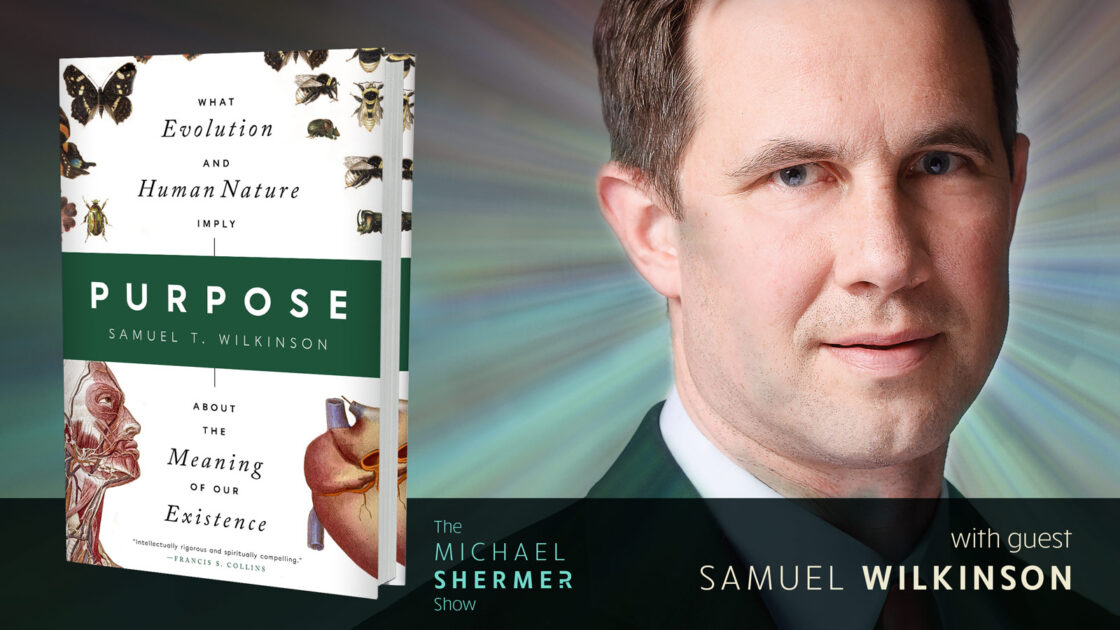
Shermer and Wilkinson discuss: • evolution: random chance or guided process? • selfishness and altruism • aggression and cooperation • inner demons and better angels • love and lust • free will and determinism • the good life and the good society • empirical truths, mythic truths, religious truths, pragmatic truths • Is there a cosmic courthouse where evil will be corrected in the next life? • theodicy and the problem of evil: Why do bad things happen to good…
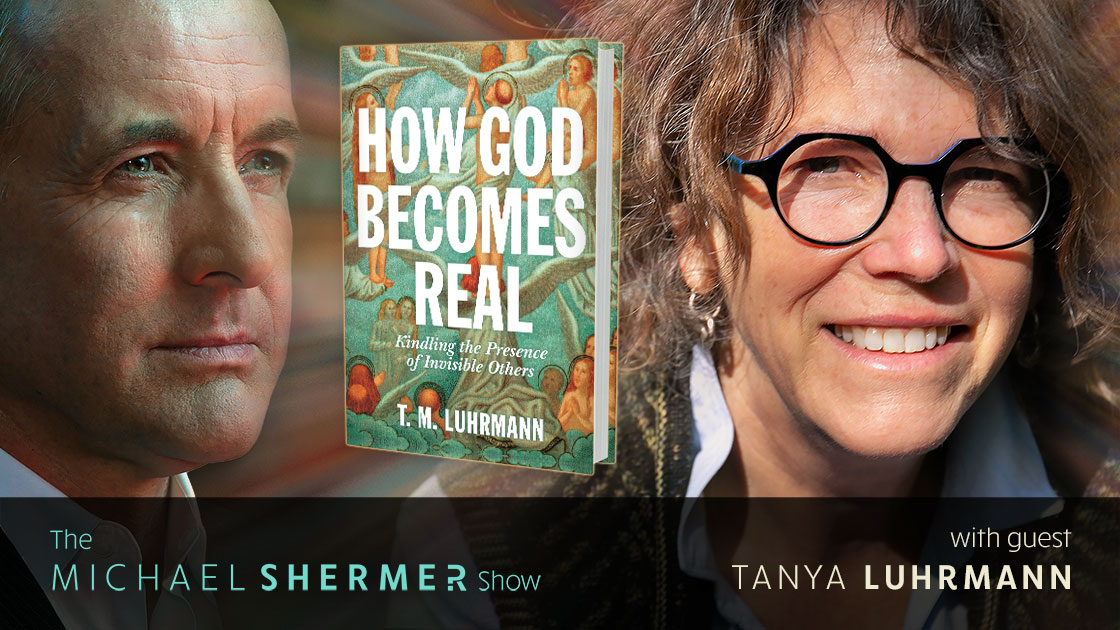
Shermer and Luhrmann discuss: the anthropology of religion • what it means when people say they “hear the voice of God” or are “walking with God” • normal “voices within” vs. hallucinations and psychoses • mystical experiences • anomalous psychological experiences • sleep paralysis and other cognitive anomalies • belief in angels and demons • absorption and religious beliefs • prayer vs. meditation vs. mindfulness • sensed presences • why people believe in God • empirical truths, religious truths, mythic truths…
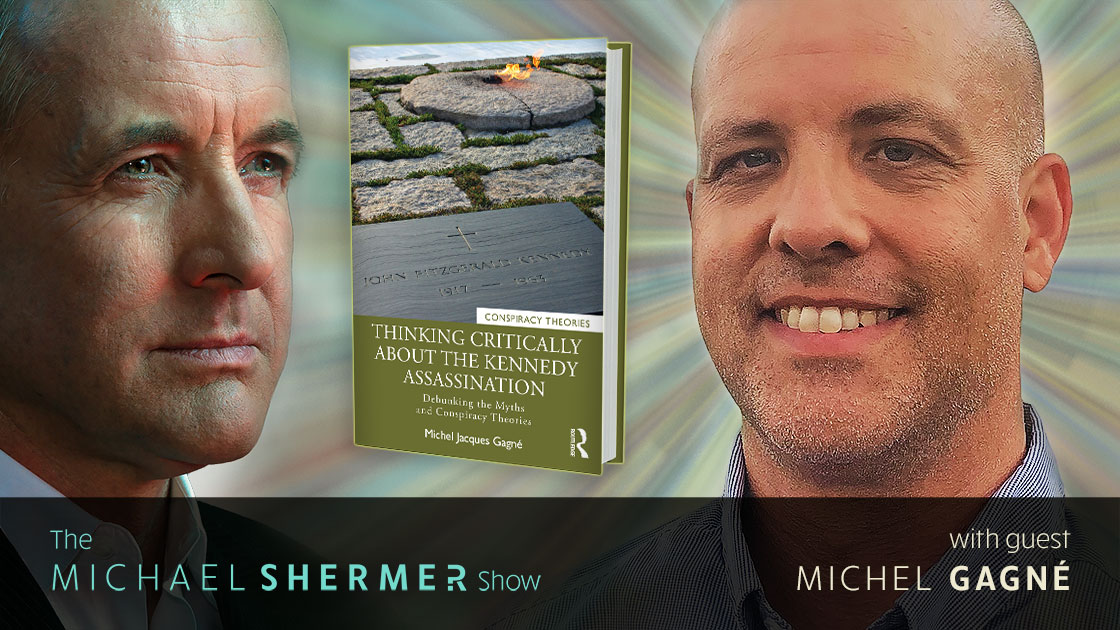
As we approach the sixtieth anniversary of the violent public assassination of President John F. Kennedy, over half of all Americans surveyed continue to believe that he was killed by a conspiracy involving multiple assassins. Shermer and Gagné discuss: conspiracies and conspiracy theories; what role conspiracy theories play in society; who believes them and why; why conspiracy theorists rewrite the past; Trump and rigged election; Obama Birtherism; and more…
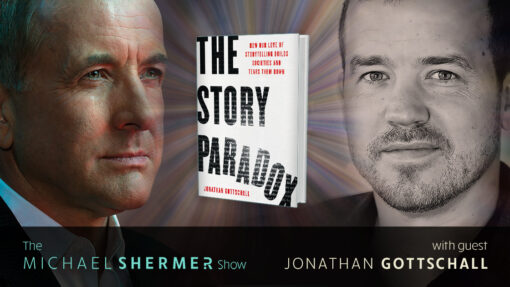
“How can we save the world from stories?” Michael Shermer speaks with Jonathan Gottschall about The Story Paradox: How Our Love of Storytelling Builds Societies and Tears Them Down. Gottschall reveals why our biggest asset has become our greatest threat, and what, if anything, can be done.
“How can we save the world from stories?” Michael Shermer speaks with Jonathan Gottschall about The Story Paradox: How Our Love of Storytelling Builds Societies and Tears Them Down. Gottschall reveals why our biggest asset has become our greatest threat, and what, if anything, can be done.
In episode 220, Michael Shermer speaks with Charles Foster about his book Being a Human: Adventures in Forty Thousand Years of Consciousness. Drawing on psychology, neuroscience, natural history, agriculture, medical law and ethics, Charles Foster makes an audacious attempt to feel a connection with 45,000 years of human history.
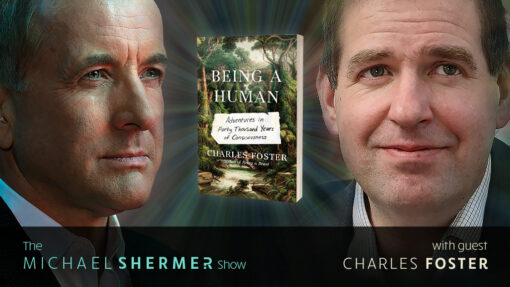
In episode 220, Michael Shermer speaks with Charles Foster about his book Being a Human: Adventures in Forty Thousand Years of Consciousness. Drawing on psychology, neuroscience, natural history, agriculture, medical law and ethics, Charles Foster makes an audacious attempt to feel a connection with 45,000 years of human history.
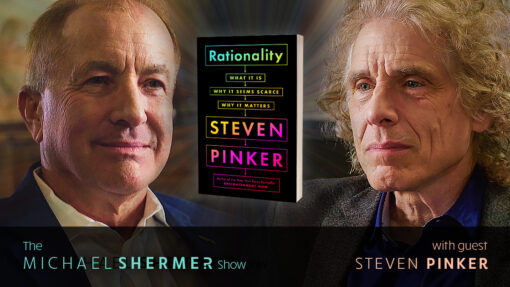
In episode 219, Michael Shermer speaks in person with Harvard psychologist Steven Pinker about his new book Rationality, about how today humanity is reaching new heights of scientific understanding — and also appears to be losing its mind. How can a species that developed vaccines for COVID-19 in less than a year produce so much fake news, medical quackery, and conspiracy theorizing?
In episode 219, Michael Shermer speaks in person with Harvard psychologist Steven Pinker about his new book Rationality, about how today humanity is reaching new heights of scientific understanding — and also appears to be losing its mind. How can a species that developed vaccines for COVID-19 in less than a year produce so much fake news, medical quackery, and conspiracy theorizing?

Michael Shermer and Mary Grabar discuss: communism • capitalism • cancel culture • the 1619 Project • empirical truths vs. mythic truths • historical revisionism vs. denial • pseudohistory • slavery 1619–1776 • reparations, Howard Zinn and the distortion of history • moral equivalency arguments • quotations taken out of context • the Holocaust s • intentionalism vs. functionalism • manipulation and deception, and more…
In episode 217, Michael Shermer speaks with Mary Grabar about her books Debunking the 1619 Project: Exposing the Plan to Divide America and Debunking Howard Zinn: Exposing the Fake History That Turned a Generation Against America.

In episode 215, Michael Shermer speaks with Mary Eberstadt about the decline of religion in which Eberstadt presents her alternative theory for the “secularization thesis” (that the undermining of the family has undermined Christianity itself). In the second half, they discuss the rise of identity politics and how identitarians track and expose the ideologically impure, as people face the consequences of their rancor.
In episode 215, Michael Shermer speaks with Mary Eberstadt about the decline of religion in which Eberstadt presents her alternative theory for the “secularization thesis” (that the undermining of the family has undermined Christianity itself). In the second half, they discuss the rise of identity politics and how identitarians track and expose the ideologically impure, as people face the consequences of their rancor.
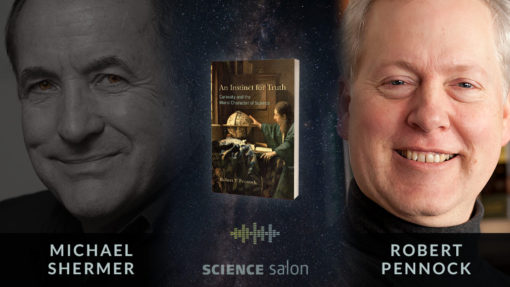
In Science Salon # 98 Michael Shermer speaks with Robert Pennock about his new book An Instinct for Truth: Curiosity and the Moral Character of Science. Taking a virtue-theoretic perspective, Pennock explores curiosity, veracity, skepticism, humility to evidence, and other scientific virtues and vices.
In Science Salon # 98 Michael Shermer speaks with Robert Pennock about his new book An Instinct for Truth: Curiosity and the Moral Character of Science. Taking a virtue-theoretic perspective, Pennock explores curiosity, veracity, skepticism, humility to evidence, and other scientific virtues and vices. PLUS, Sociologist and Certified Sex Therapist Marty Klein, Ph.D. reviews Estrogen Matters: Why Taking Hormones in Menopause Can Improve Women’s Well-Being and Lengthen Their Lives — Without Raising the Risk of Breast Cancer by Avrum Bluming,…


















